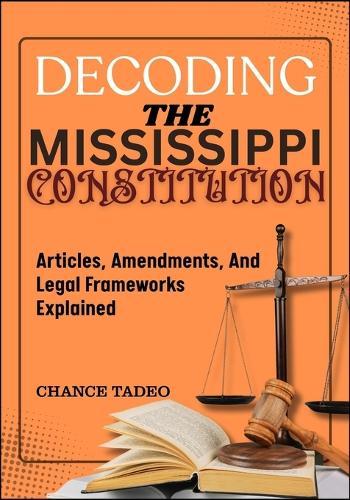Overview
The Constitution of the State of Mississippi stands as the foundational legal document that defines the structure, powers, and limits of the state government, while simultaneously safeguarding the rights and liberties of its citizens. It serves as the supreme law of Mississippi, establishing the framework for governance, lawmaking, and the administration of justice within the state. The Mississippi Constitution is both a historical artifact and a living document, evolving over time to meet the changing needs, values, and challenges faced by its people. Structure and Purpose The Mississippi Constitution articulates the organization of the three branches of government: legislative, executive, and judicial. It specifies the powers and duties of each branch, aiming to create a balance that prevents the abuse of power and protects individual rights. The legislative branch is charged with making laws, the executive branch with enforcing laws, and the judiciary with interpreting laws. Besides outlining governmental functions, the Constitution includes a Declaration of Rights, a fundamental section that enumerates the civil liberties and protections afforded to citizens, such as freedom of speech, religion, due process, and equal protection under the law. This section underscores the state's commitment to the rule of law and the protection of individual freedoms. Amendments and Modern Relevance Like all constitutions, Mississippi's has not remained static. Over the years, it has undergone numerous amendments to address new challenges, correct inequities, and modernize governance. These changes reflect Mississippi's efforts to adapt to evolving societal norms, economic realities, and legal standards, including civil rights advancements and technological progress. Today, the Mississippi Constitution continues to play a crucial role in shaping public policy, guiding government operations, and protecting the rights of Mississippians. Understanding its provisions, history, and amendments is essential for comprehending the state's political culture and legal environment. Significance for Citizens and Governance For the people of Mississippi, the Constitution is more than a legal code; it is a symbol of their sovereignty and democratic participation. It embodies the principles of representative government and the notion that governmental power derives from the consent of the governed. It also represents a commitment to justice, equality, and order, serving as a reference point for resolving disputes and directing the state's future. For scholars, lawyers, and public officials, the Mississippi Constitution is a vital document that informs the interpretation of laws, guides policy decisions, and anchors the state's legal system. Its study offers insights into Mississippi's unique historical path and contemporary governance challenges.
Full Product Details
Author: Chance Tadeo
Publisher: Independently Published
Imprint: Independently Published
Dimensions:
Width: 17.80cm
, Height: 0.70cm
, Length: 25.40cm
Weight: 0.240kg
ISBN: 9798297117204
Pages: 130
Publication Date: 08 August 2025
Audience:
General/trade
,
General
Format: Paperback
Publisher's Status: Active
Availability: Available To Order

We have confirmation that this item is in stock with the supplier. It will be ordered in for you and dispatched immediately.



